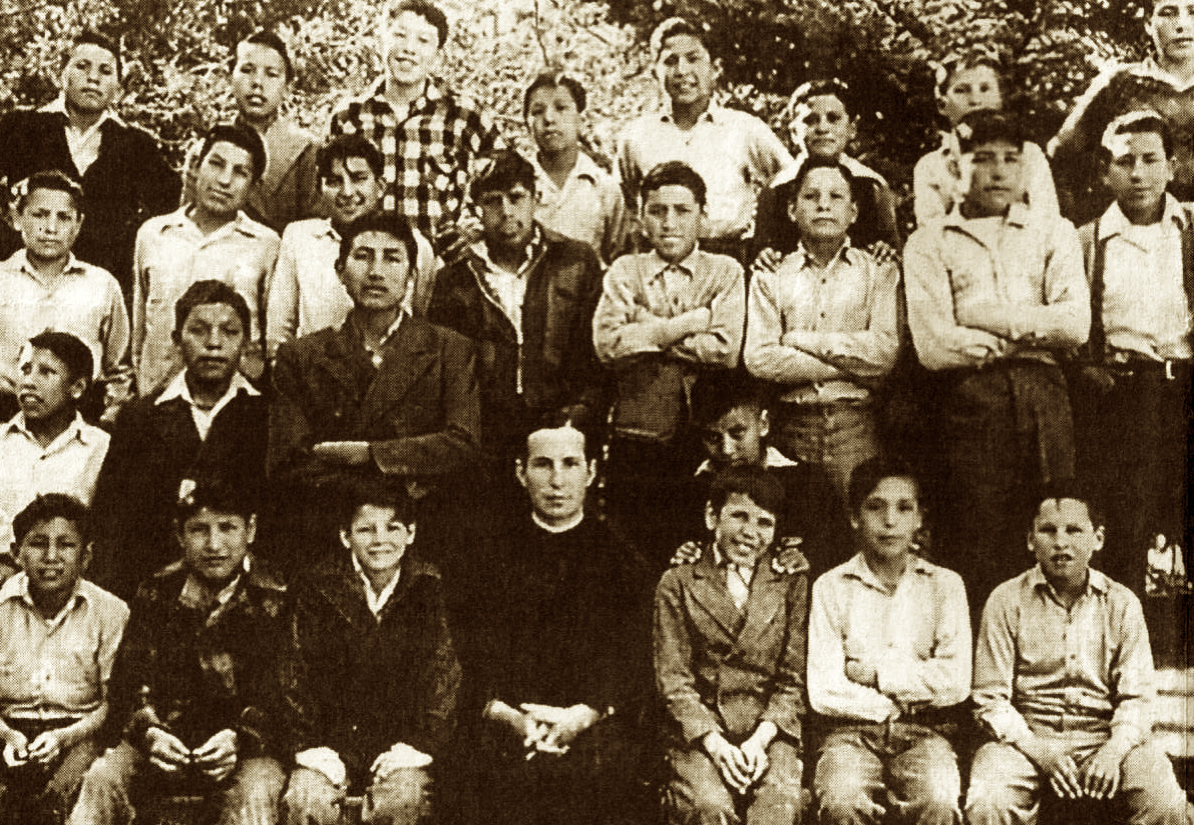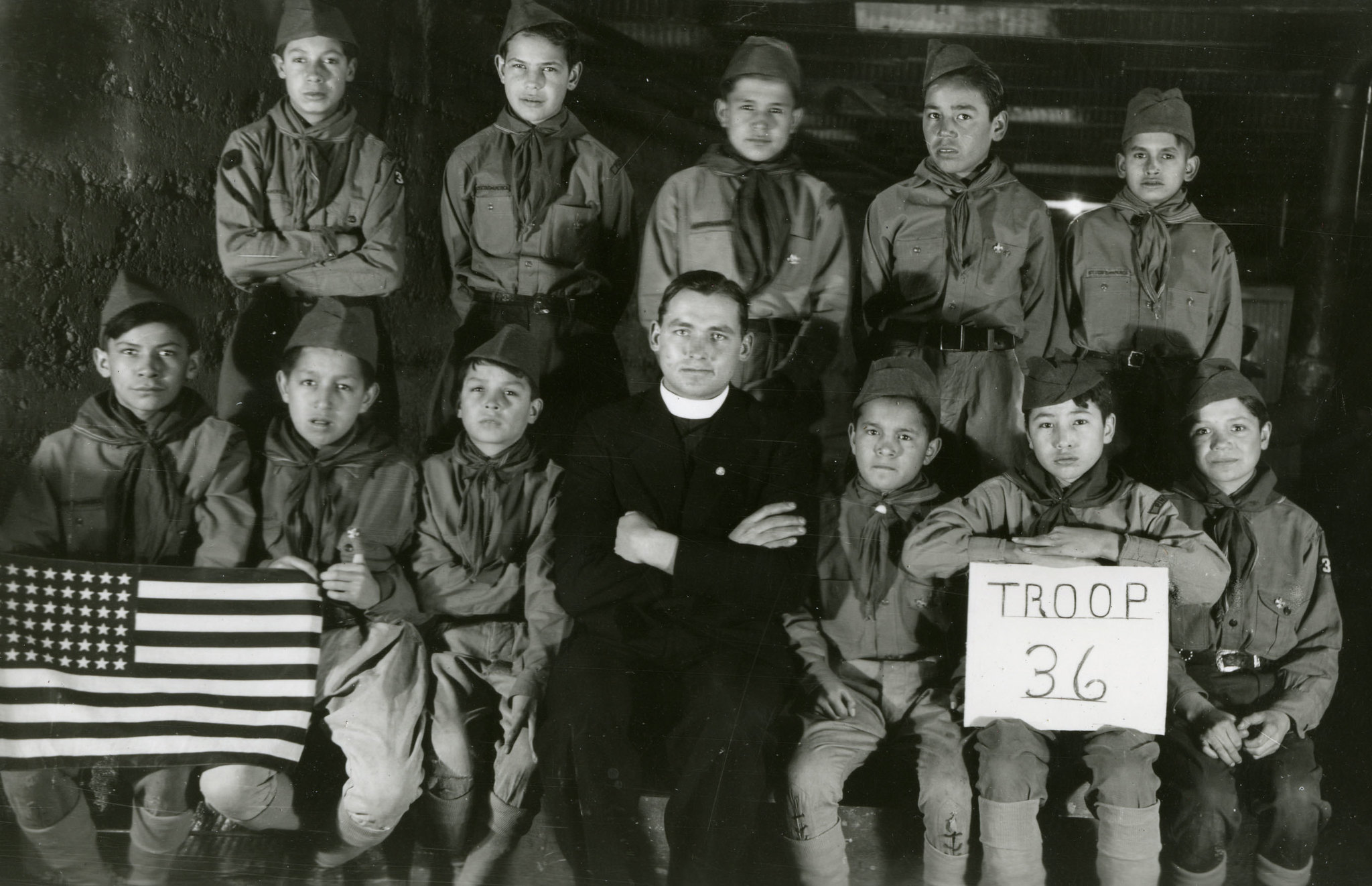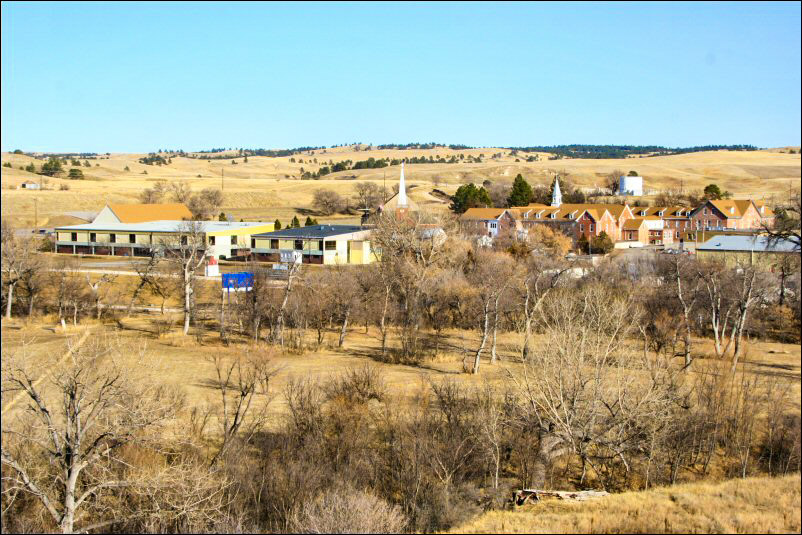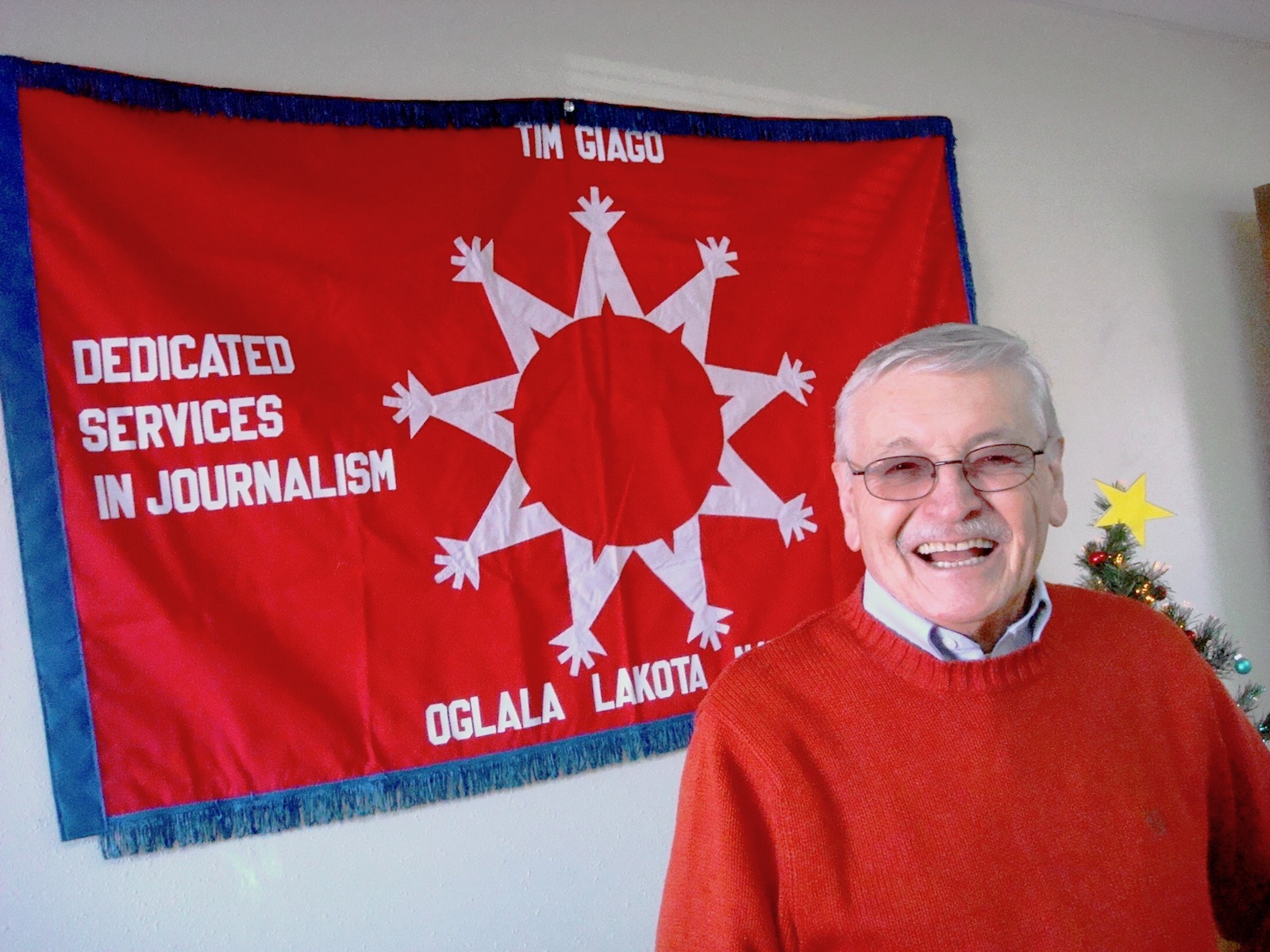Indianz.Com > News > Tim Giago: ‘I will never forgive them for what they did to us’

An era of shame: The boarding schools
Tuesday, January 4, 2022
PINE RIDGE RESERVATION — Holy Rosary Indian Mission, or Red Cloud Indian School as it now calls itself, is located on the Pine Ridge Reservation.
Peter Smith, a writer for the Associated Press, wrote what he probably surmised to be the definitive article on the Indian boarding schools. The local Rapid City Journal picked it up and gave it a headline, “Ex-boarding school confronts its past.”
In the estimation of the staff and management of Native Sun News Today this article missed the point by a mile and a half. Here are a few stories by and about former Mission students that hold the terrible truth.
It seems that the former Holy Rosary Indian Mission boarding school is feeling pangs of guilt and is undertaking what it calls “Truth and Healing.” The school now wants to hear the stories of former students and open its archives and face its past. Read on but please understand the some of the stories of former students are very graphic. Read with caution. And for the staff at Red Cloud, put these stories in your files.Ex-boarding school for Native children owning up to its past | News | https://t.co/v0qOX3pH4C – https://t.co/2HK9vJvTGz #GoogleAlerts
— Bear Christensen (@Bearchristensen) January 3, 2022
 Goldie Walks Under the Ground and Shirley Giago held a terrible secret. They had both been raped by a Mission Groundskeeper who had a house on the Mission grounds. His name was Albert Roki. Goldie and Shirley were just two of the hundred or more girls Roki raped in the years he worked at the Mission.
Both girls took their story to the nuns but they were ignored, but it seems the nuns felt that the story would come out eventually so one day Albert Roki disappeared. Boom, just like that he vanished and was never again seen on the Mission grounds. He never paid the consequences for the damage he did to so many little Lakota girls.
Holy Rosary Indian Mission priests and nuns had but one purpose and that was to strip the Lakota culture and traditional spirituality from the hearts and minds of the young Indian boys and girls placed in their care.
But in order to do that they had to convince the children that their parents and grandparents had no culture and were godless. In many cases they destroyed the children in the process.
Goldie Walks Under the Ground and Shirley Giago held a terrible secret. They had both been raped by a Mission Groundskeeper who had a house on the Mission grounds. His name was Albert Roki. Goldie and Shirley were just two of the hundred or more girls Roki raped in the years he worked at the Mission.
Both girls took their story to the nuns but they were ignored, but it seems the nuns felt that the story would come out eventually so one day Albert Roki disappeared. Boom, just like that he vanished and was never again seen on the Mission grounds. He never paid the consequences for the damage he did to so many little Lakota girls.
Holy Rosary Indian Mission priests and nuns had but one purpose and that was to strip the Lakota culture and traditional spirituality from the hearts and minds of the young Indian boys and girls placed in their care.
But in order to do that they had to convince the children that their parents and grandparents had no culture and were godless. In many cases they destroyed the children in the process.

The Lakota boys and girls came from loving and caring Lakota families. They did not have a choice when it came to the boarding schools. In the beginning it was the law. It was a monster of an experiment exacted on the Indian children that eventually failed, but the cost to so many children was horrific. Some former students may think that reconciliation is good, but others will never give into it. One former St. Francis student said, “I will never forgive them for what they did to us. Even at my age I still have nightmares.” And in the face of all that, South Dakota passed a law that does not allow childhood sexual abuse survivors over age 40 to sue Churches or organizations. All boarding school sex abuse victims are now over 40. Marci Hamilton, a Professor at the University of Pennsylvania who runs an organization advocating for removing the statute of limitations on childhood sexual abuse, told lawmakers that South Dakota is the only state since 2002 to put restrictions on the statute of limitations.#OrangeShirtDay reminds us of the trauma Indian boarding schools inflicted on indigenous people. Today we begin our own Truth & Healing Initiative to openly acknowledge and grieve the tragic injustices in our past. Learn more and join us. https://t.co/2QBgjxSrRk pic.twitter.com/XjQa9F8VGr
— Red Cloud Indian School (@RedCloudSchool) September 30, 2020

Contact Tim Giago at najournalist1@gmail.com Note: Content © Tim Giago
Search
Filed Under
Tags
More Headlines
Montana Free Press: Blackfeet Nation citizens cite treaty rights in lawsuit over tariffs
Cronkite News: A ‘mural with a message’ rises in Arizona
Chuck Hoskin: Cherokee Nation is an economic powerhouse
Native America Calling: Philanthropy fills in the gaps
AUDIO: Examining 50 years of the Indian Self-Determination and Education Assistance Act in Indian Country
Native America Calling: The next 50 years of self-governance
Cronkite News: Food sovereignty movement promotes Native foods
VIDEO: Examining 50 years of the Indian Self-Determination and Education Assistance Act in Indian Country
Native America Calling: Fresh Native creativity with a new play and new television show
AUDIO: Native American Education – Examining Federal Programs at the U.S. Department of Education
VIDEO: Native American Education – Examining Federal Programs at the U.S. Department of Education
Native America Calling: Indigenous business and the unpredictable new trade landscape
Written testimony for Senate Committee on Indian Affairs hearing on Department of Education
Native America Calling: An imbalance of deadly force by police in Canada
‘Betrayal’: Indian Country slams closure of Department of Education
More Headlines
Cronkite News: A ‘mural with a message’ rises in Arizona
Chuck Hoskin: Cherokee Nation is an economic powerhouse
Native America Calling: Philanthropy fills in the gaps
AUDIO: Examining 50 years of the Indian Self-Determination and Education Assistance Act in Indian Country
Native America Calling: The next 50 years of self-governance
Cronkite News: Food sovereignty movement promotes Native foods
VIDEO: Examining 50 years of the Indian Self-Determination and Education Assistance Act in Indian Country
Native America Calling: Fresh Native creativity with a new play and new television show
AUDIO: Native American Education – Examining Federal Programs at the U.S. Department of Education
VIDEO: Native American Education – Examining Federal Programs at the U.S. Department of Education
Native America Calling: Indigenous business and the unpredictable new trade landscape
Written testimony for Senate Committee on Indian Affairs hearing on Department of Education
Native America Calling: An imbalance of deadly force by police in Canada
‘Betrayal’: Indian Country slams closure of Department of Education
More Headlines